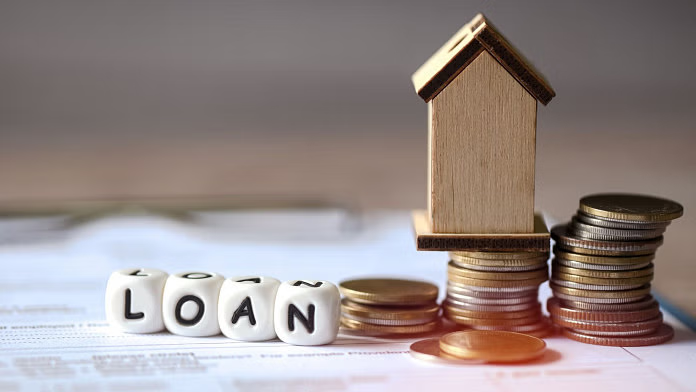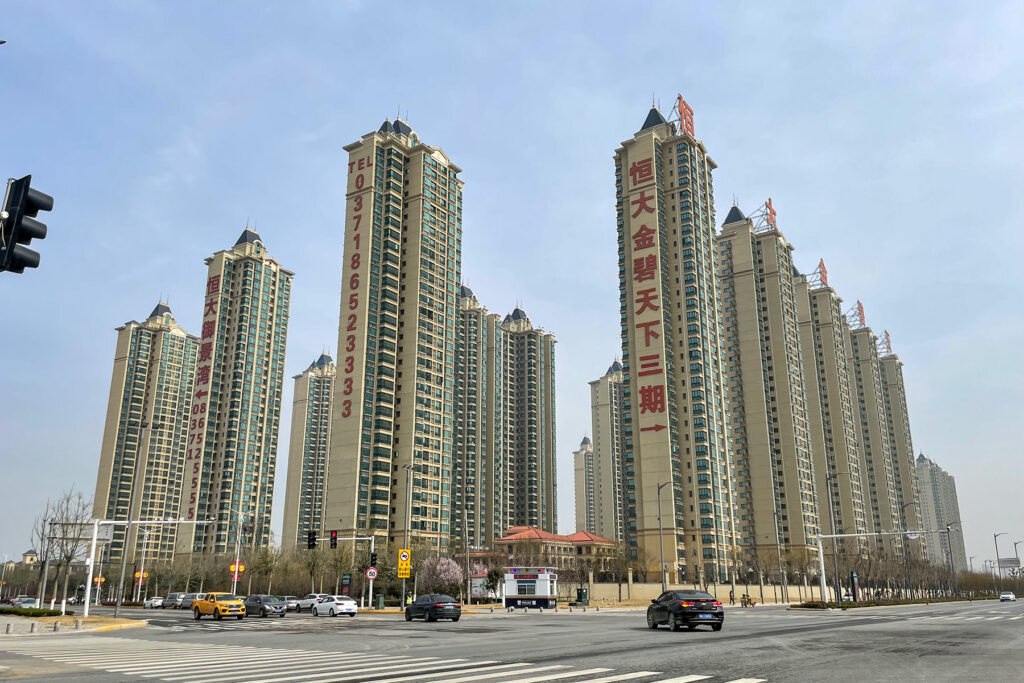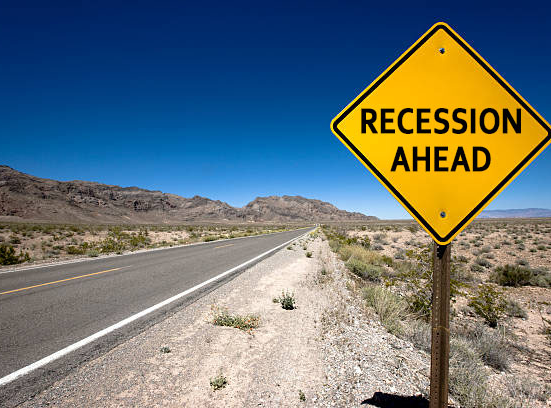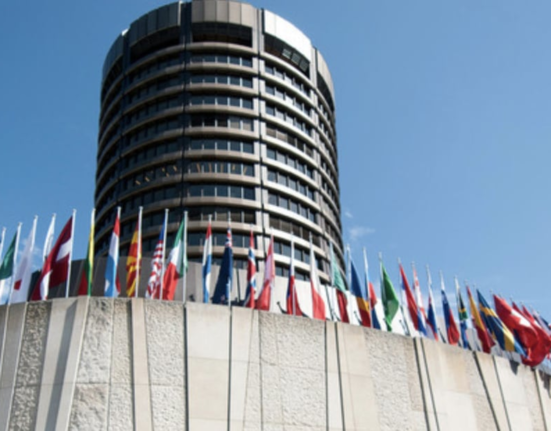As China bank undergoes an economic crisis that has coincided with a difficult post-pandemic recovery period, many borrowers are defaulting on loans at unprecedented levels. There are concerns about bad loans in China’s banking sector.
Here’s a breakdown of the situation:
- Bad loans are on the rise: The total amount of bad loans held by Chinese banks has reached a record high. This is due to a number of factors, including:
- Slowing economy: China’s economic growth has been slowing down, which is putting a strain on businesses and making it harder for them to repay their loans.
- Troubled property sector: The Chinese real estate market has been struggling, with many developers facing financial difficulties. This has led to an increase in bad loans related to property development.
- End of moratorium policies: China had temporary policies allowing some borrowers to delay loan repayments during the pandemic. As these policies end, some of those loans may transition to bad loans if borrowers are unable to catch up.
- Impact on banks: The rise in bad loans could hurt the profitability of Chinese banks. It could also lead to tighter lending conditions, as banks become more cautious about who they lend to.
- Future outlook: Analysts predict that bad loans may continue to rise in the near future, particularly as the problems in the property sector play out. However, the Chinese government is taking steps to address the issue, such as encouraging banks to work out repayment plans with struggling borrowers.

Here are some additional points to consider:
- Not all bad loans are equal. Some are more likely to be recovered than others.
- The Chinese government has a lot of control over the banking sector, which could help to mitigate the risks associated with bad loans.
Particularly, as of March 28, the value of China’s banking bad loans had hit a record high of 3.28 trillion yuan ($0.45 trillion), Bloomberg data indicates.

The default figures have come in the wake of China’s prolonged property downturn with the bad loans significantly impacting some of the country’s largest lenders.
For instance, Bank of Communications recorded a surge in its property bad loan ratio from 2.8% to 4.99% by the end of last year, with special mention loans for the segment rising 23% to 9.88 billion yuan ($1.4 billion).
At the same time, Industrial & Commercial Bank of China Ltd. noted a 9.6% increase in bad loans from residential mortgages, reaching 27.8 billion yuan. Agricultural Bank of China saw a 4.7% uptick in soured residential mortgage loans, with the NPL ratio for the property sector surpassing other industries.
Table of Contents
Blacklisted for debt as loan defaults hit record high
Amid China‘s economy struggles to recover and unemployment remains high, the country’s indebted population is growing at a rapid rate, Voice Of America reported.
VOA quoting a report from the Financial Times said that defaults by Chinese borrowers have surged to a record high since the pandemic, with authorities blacklisting 8.54 million people from economic activities ranging from using toll roads to purchasing airline tickets and using payment applications.
According to the report, the number is up from 5.7 million defaulters in early 2020 and amounts to about 1% of working-age Chinese adults.
After online payment platforms like Alipay and WeChat replaced cash as the most used payment method in China, many stores refused cash payments, and some defaulters said it had become difficult for them to even buy food.
Those blacklisted by authorities for debt have difficulty obtaining other loans and, in some cases, are even banned from working as civil servants.
A Changsha businessman, Zhang Congzhi started borrowing money two or three years ago when online loans were easy to get. Now, the he has no money to repay those loans.
“I’m in debt for more than 100,000 yuan [approximately $13,700],” Zhang told VOA Mandarin. “Nobody can help me. The only solution I can think of is to delay repayment.”
Zhang is one of the millions of Chinese people who are in debt from loans they took out to get by during the economic disruption caused by the COVID pandemic and China’s strict lockdowns.
VOA reported quoting a banker, Lu Xiaojuan that China’s general public does not borrow money directly from the banks because they do not have collateral like a house or car.
The general public does not borrow money directly from banks because they do not have collateral like a house or car, said Lu Xiaojuan, a banker in Jinan, Shandong province, in a phone interview with VOA Mandarin.
China’s property crisis
Indeed, the bad loan growth comes as the country’s property sector is in a transition from a state-dominated model to a more market-oriented approach.
Notably, the Chinese real estate market serves as a gauge of the country’s overall economic well-being. Given its intricate ties to diverse sectors such as construction and financial services, the sector’s vitality is indicative of the nation’s economic stability at large.
As previously reported by Reuters, Chinese banks accelerated the sale of bad loans at an unprecedented rate, driven by regulatory pressure to swiftly dispose of sour debts amidst a surge in consumer defaults.

In China, loans are typically classified as nonperforming if payments are overdue by more than 90 days.
Causes:
- Excessive borrowing and overbuilding: Fueled by rapid urbanization and speculation, property developers took on massive amounts of debt to finance new construction projects. This created a bubble in the market.
- Government regulations: In an attempt to cool down the overheated market, the Chinese government introduced restrictions on developers’ borrowing in 2020. This policy, known as the “three red lines,” limited debt levels based on various financial ratios.
Impact:
- Defaults by developers: Unable to access new funding and facing slowing sales, major developers like Evergrande began defaulting on their massive debts in 2021. This triggered a wave of bankruptcies and unfinished construction projects.
- Slumping property sales: Consumer confidence in the market plummeted as property values stagnated or even declined. People became hesitant to buy new homes, further dampening the market.
- Economic slowdown: The property sector is a major driver of the Chinese economy. The crisis has had a ripple effect, impacting construction, steel, and other related industries. It has also contributed to a slowdown in economic growth.
Current situation (July 2024):
- The crisis is still ongoing. The property market remains sluggish, with ongoing challenges for developers and homebuyers.
- The Chinese government is taking steps to stabilize the market, including:
- Providing some financial support to developers to complete unfinished projects.
- Loosening some lending restrictions for qualified buyers, especially for first-time home purchases.
Eroding confidence
In general, the increasing number of defaulters is contributing to a partial erosion of consumer confidence in China. This situation also highlights the absence of personal bankruptcy laws in the country, which could potentially mitigate the financial and social repercussions of escalating debt burdens.
At the same time, authorities are ramping up enforcement efforts, penalizing financial institutions for mishandling debts. The National Administration of Financial Regulation (NAFR), a newly established banking regulator, has issued several punishments in this regard.
Confidence in the Chinese Economy:
- Slowing economic growth, the property market slump, and rising bad loans raise concerns about the overall health of the Chinese economy.
- Businesses may be hesitant to invest, and consumers might tighten their spending, further dampening economic activity.
Confidence in the Chinese Banking System:
- The rise in bad loans raises questions about the stability of Chinese banks. Investors and depositors might become more cautious, potentially impacting banks’ ability to lend.
Confidence in the Chinese Property Market:
- The property crisis has shaken consumer confidence in the real estate market. People might be hesitant to buy property due to concerns about falling prices or unfinished projects.
Global Confidence:
- China’s economic woes can have a ripple effect on the global economy. Reduced Chinese demand for commodities and a slowdown in trade can impact other countries.
- Uncertainty surrounding China’s economic future can also lead to increased volatility in global financial markets.
What’s being done?
- The Chinese government is taking steps to address these issues, including:
- Providing stimulus to boost economic growth.
- Supporting the property market by easing lending restrictions for qualified buyers.
- Taking measures to manage bad loans in the banking system.
The effectiveness of these measures remains to be seen. Rebuilding confidence takes time, and the success of these policies will depend on various factors, including the global economic climate and the evolution of the property crisis.
Additional points to consider:
- The erosion of confidence is not uniform. Some sectors and demographics might be more affected than others.
- How the Chinese government manages these challenges will be crucial in determining the long-term impact on confidence.
Overall, China’s economic situation is a complex issue with global implications. The erosion of confidence is a significant challenge, but the Chinese government’s response will be key in determining the path forward.
Disclaimer ||
The Information provided on this website article does not constitute investment advice ,financial advice,trading advice,or any other sort of advice and you should not treat any of the website’s content as such.
Always do your own research! DYOR NFA
Coin Data Cap does not recommend that any cryptocurrency should be bought, sold or held by you, Do Conduct your own due diligence and consult your financial adviser before making any investment decisions!



